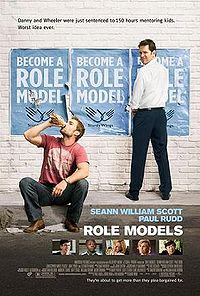I barely recall viewing the original Star Trek during the series' first run on television. Being less than five years old at that time, I was most likely tucked tightly in bed when Gene Roddenberry's show was first broadcast. My initiation with Captain Kirk, Mr. Spock and the Enterprise came a bit later, when episodes were syndicated. I was fascinated by the series: the characters were larger than life, the stories addressed modern day issues I related to, and each story was told in a self-contained manner that was satisfying to the audience.
Technology in the late 60's didn't have the pizazz of modern television, and couldn't be relied upon to tell a story visually. The sci-fi aspect of the original series, then, always seemed to take a back seat to the story being told. Phasers set to stun, wireless communicators, medical equipment designed to diagnose by scanning and transporter beams were awesome ideas, but the technology level of the time still made each seem just a little cheesy.
But those stories! Complex, often socially relevant stories about humanity. Stories about the duality of our personalities,
racism,
and religion.
Sure, there were Tribbles too. But everyone needs some fun once in while. Right?I didn't care that much for Capt. Kirk. He was stubborn, sometimes whimsical and seemed full of himself. I was much more interested in Mr. Spock; watching Spock explore his humanity and learn to embrace his emotions made him a terrific role model for a early-teen male coming of age. Like Spock, I had TNT-like emotions buried beneath my surface, and I struggled with keeping them in check. I understood Spock, and identified with him.
Save for the ears.
It was with this perspective that I viewed J.J. Abrams new
Star Trek.
The prequel, an amped-up technical bonanza, tells the story of how Kirk, Spock, Bones McCoy and other major characters meet and develop relationships at Star Fleet Academy. Near the end of their training, Star Fleet detects a distress call from the planet Vulcan, and the Enterprise, lead by Captain Pike, is dispatched to assist. What Pike and crew discover changes everything. Literally. (Near-spoiler: You might check out the work of Hugh Everett before watching this movie.)Abrams' take on the characters, and how they are portrayed by the actors, is pretty good. There's a hint of Shatner in Chris Pine, and Zachary Quinto seems to channel Mr. Spock. Abrams adds a bit of humor here and there to offset the kick-ass action, but works too hard to make all the characters fit into the puzzle early. The plot felt a bit hurried, and a little too contrived.I always viewed Star Trek TV sequels and movies as morality plays, and judged each by how well the stories addressed a modern social theme. Just as the original tackled important issues of its day, the best of those that followed did the same. This is the missing key ingredient in the new Abrams version. Terrific characters, an interesting twist, a great villain, incredible action and unbelievable technical scenes make for a pretty good story. But pretty good doesn't quite cut it if one wants to make a Star Trek flick. The movie's theme, "an all-consuming thirst for revenge will destroy all" is fine, but it's nothing more than that. Just "fine." And for the Star Trek franchise, that's not good enough.


 According to the complaint, the truck drivers both saw Jones driving with his pants down by his ankles, wearing women's underwear and stockings and he was fondling himself while driving.
According to the complaint, the truck drivers both saw Jones driving with his pants down by his ankles, wearing women's underwear and stockings and he was fondling himself while driving. Mothers who ignore their kids in order to keep the step-father happy: Check.
Mothers who ignore their kids in order to keep the step-father happy: Check.

 Things about zombie flicks that scare me:
Things about zombie flicks that scare me: